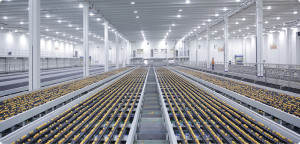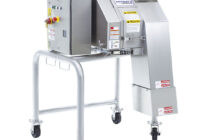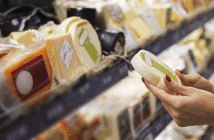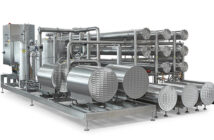
“Demand for fresh produce during all seasons is making the entire industry and supply chain re-think the way they do business.
New Zealand post-harvest solutions and services company Compac is expanding to take advantage of massive global trends in fresh produce
A global appetite for premium fresh produce that is quality-guaranteed is helping fuel extraordinary growth for New Zealand firm Compac.
The company provides post-harvest technology, software and services to the fresh produce industry and last year reached a milestone of more than $100 million in revenue.
It is the kind of growth that Compac’s VP for Marketing and Product Perry Sansom says people are amazed at. “When we talk about the numbers, people really sit up and take notice because we’re in a sector that is worth $5 trillion globally each year and we’re leading the pack with our solutions,” Sansom says.
The growth is due to the company’s ability to scale up and adapt its solutions to meet increasing consumer demand and lead technology trends.
Compac’s industry-leading optical platform, Spectrim, gives customers the ability to inspect the fruit surface and sort for blemishes, adding value to packed crops while reducing operational costs. Another product uses near infrared technology to look inside the fruit to measure acidity, sugar content and firmness. This enables customers to sort the produce for taste and also determine how long each piece can be stored.
But Compac is branching out. It recently expanded its executive team and brought in professionals from the global technology sector with leadership expertise to help the business adapt and grow within a rapidly changing industry.
“We’re on an extraordinary journey from technology provider to being more solutions and services focused. We are doing this in partnership with our customers,” says Sansom.
“Compac has an exciting future ahead and could easily double within a few years.”
He says the company will provide complete managed services to its customers, owning and operating the packing facility, while scaling up the software and data side of the business.
Part of this plan includes doubling its team of 30 software developers in the next few years – and to attract key professionals, Compac recently opened an office in downtown Auckland.
A major opportunity Compac has identified is to provide data that can help customers’ decision making. Customers are using data generated by Compac systems to improve their growing practices, tracking the quality of the fruit from each orchard block as it’s exposed to different growing methods. Others are using Compac’s data to manage their inventory in real-time, selling fruit before it’s even in the box, to lock in the best market price.
“Demand for fresh produce during all seasons is making the entire industry and supply chain re-think the way they do business. Organisations like Compac have a role to play when it comes to safety and quality for the consumer,” says Sansom.
The company has led the industry’s technological developments since founder Hamish Kennedy created a fruit sorting prototype out of his garage 32 years ago. Kennedy still has a hand in the business as a director of the company.
Since start up, the company has grown to supply its complete post-harvest solutions to customers in 40 countries, with offices in New Zealand and Australia, Asia, the US, UK, Europe, South America and South Africa.
The recent opening of Compac’s European HQ in one of the world’s strategic citrus growing regions, Valencia Spain, is a crucial step for the company in continuing to establish a global footprint.
Compac acquired the Spanish company Fomesa, which had a factory in Valencia as well as a capable team and a distribution network and customers that attracted Compac.
“There’re always challenges when you invest in an existing organisation in a new geography but we were able to retain key staff at all levels of the company,” says Sansom. Compac also sent one of its shareholders and other key New Zealand staff to Valencia to make sure the transition and factory refurbishment went to plan.
In a matter of months, the company has taken on a major customer, Garcia Aranda, which is the exclusive supplier of lemons to the European supermarket chain Lidl. It’s a coup for Compac, which sorts an estimated 70 per cent of the citrus produced in the United States, but has yet to dominate in Europe.
Sansom says the company now has good coverage for manufacturing, with factories in China, Europe and New Zealand – the Auckland factory is in the process of moving to new premises which are nearly twice the size. Compac also has a specialist kiwifruit centre of excellence in the Bay of Plenty.
Looking ahead, Compac is expecting China to become a major market for its post-harvest solutions, rising to a quarter of its revenue in the next five years.
The company’s annual revenue growth is forecast to rise 40 per cent this financial year.
NZTE is the Government’s international business development agency.
Find more international insights at www.nzte.govt.nz and twitter.com/NZTEnews.




























































































